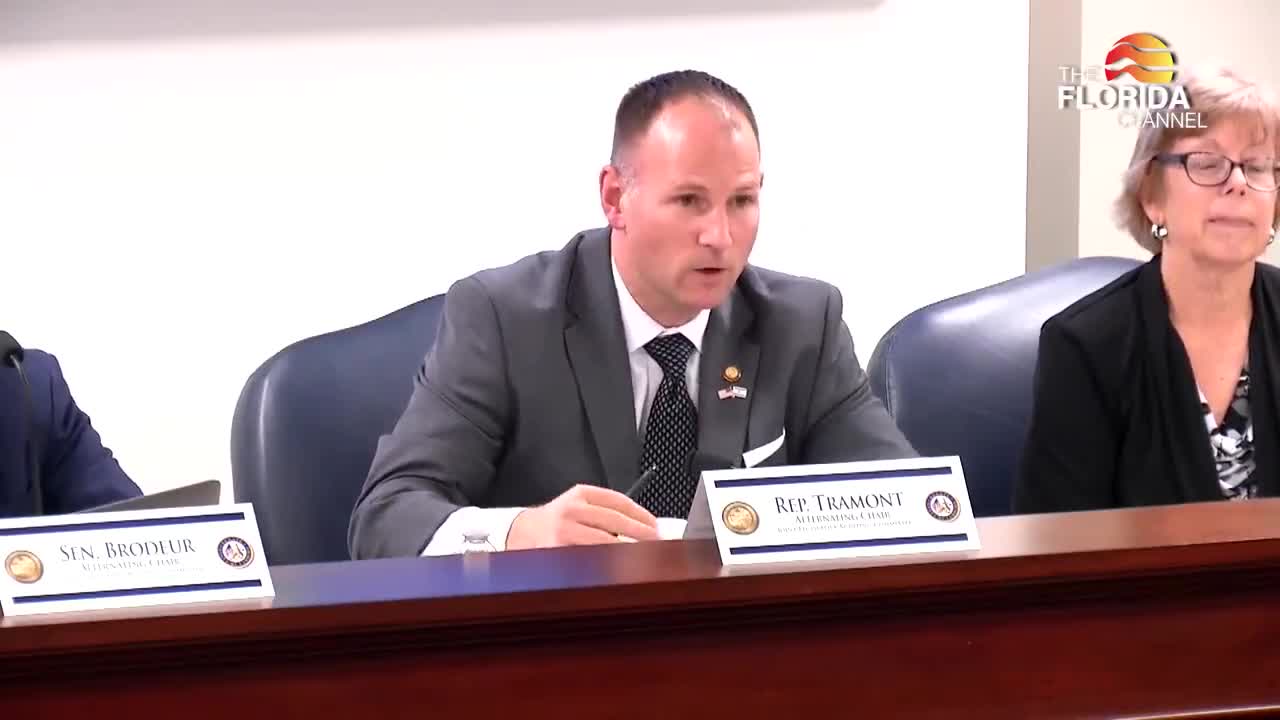Committee hears demonstrations of Transparency Florida, state contract and financial-reporting tools
Get AI-powered insights, summaries, and transcripts
Subscribe
Summary
Officials from the governor’s office and the Department of Financial Services demonstrated the Transparency Florida website and related tools and described the committee’s draft Transparency Florida report, including user features, data coverage and training options.
At a meeting of the Joint Legislative Auditing Committee on Columbus Day, the governor’s office and the Department of Financial Services demonstrated the Transparency Florida website and two related financial‑reporting tools and reviewed a draft committee report about the site.
The presentations described how Transparency Florida publishes budget, expenditure and personnel information, and how two complementary systems — the Florida Accountability Contract Tracking System (referred to in testimony as FAX) and the Florida Open Financial Statement System (LoggerX) — provide contract and local government financial-reporting data.
Teresa Gagnon, policy coordinator for systems design and development in the governor’s office, said the Transparency Florida website was launched in February 2010 and now retains data back to fiscal 2009. “The ledger view is the most popular page in Transparency Florida,” Gagnon said, describing a page that displays appropriations actions, budget amendments, vetoes and disbursements and allows users to view statewide or agency-level data. She outlined user features including a general-public view, a more detailed budget-analyst view, an interactive GAA (General Appropriations Act) view, and “quick facts” and charting tools that let users compare and filter data.
Renee Hermelin, director of the Division of Accounting and Auditing at the Department of Financial Services, described additional tools linked from the DFS site. She said the contracts system (FAX) contains two‑party agreements — contracts, grant agreements and purchase orders — added since about February 2011 and that “all two‑party agreements are required to be loaded into FAX within 30 days of execution.” She also described LoggerX, the state’s Open Financial Statement System, which uses an XBRL taxonomy for local government annual financial reports and offers standardized, statewide comparability; complete AFRs in LoggerX are generally available beginning with fiscal-year filings that end Sept. 1, 2022, while other system data extend back to about 2012.
Presenters highlighted user supports and usage figures. Gagnon said Transparency Florida is updated daily through interfaces with state ledger systems and that the ledger view draws the most traffic. She offered training options ranging from web videos to in‑person training. Gagnon told the committee that Transparency Florida has more than 12,000 active users and more than 300,000 page views in the most recent reporting year. Hermelin said DFS provides downloadable payments and financial reports and that users can export search results for analysis.
Committee staff noted the draft committee report describing legal requirements for Transparency Florida and the broader Florida Sunshine portal and recommended members may submit additional suggestions. Chair Tremont said any committee recommendations to add types of entities to the site must include a schedule and format for the additional information; committee staff asked members to submit recommendations by Oct. 30.
The presentations and staff materials together defined available searches, report types, and the limits of each system: Transparency Florida focuses on state budget and personnel data; FAX provides contract metadata and, where applicable, linked documents; LoggerX holds standardized annual financial-report data for local governments at the AFR level rather than transactional detail.
Committee members asked clarifying questions about which entities and datasets are included and about timelines and user access. Hermelin and Gagnon offered to follow up on whether school districts use the XBRL format and on other items members raised.
The committee did not take formal action on the presentations during the meeting; staff will incorporate member suggestions into the draft report and will return the item for further consideration.
